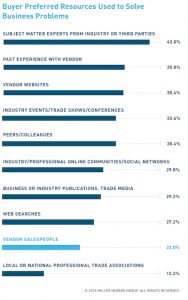How Will Digital Advertising Work Now That Privacy Is Here to Stay?
Ad blockers. Safari Intelligent Tracking Prevention. GDPR. Cambridge Analytica. It’s now undeniable: the door is closing on unfettered user-level data and behavioral targeting, and marketers, publishers, and digital ad platforms are being forced to adapt. Yet, marketing budgets aren’t going away and digital advertising should continue to thrive, albeit under a different industry mindset. Here are a few predictions on how that might look.
Contextual targeting will experience a renaissance
As the ability to behaviorally target becomes more restricted, expect contextual targeting to re-emerge, yet with a great deal of room to grow. Statically defined contextual targets such as location and content topic are relic, the stuff of magazines and broadcast television.
Every moment of every day, we all experience in-the-moment contexts that are unique to us. Next-generation contextual targeting will have to be dynamic, ready and waiting to serve relevant ads when the right contextual opportunities present themselves.
Social media channels like Twitter currently give marketers a way to target messages to in-the-moment contexts based on events, news, and ideas. But even the most effective social media “war rooms” require enormous manual effort. The raison d’être of programmatic advertising is to automate what once was performed manually, so be on the lookout for increasingly innovative and automated contextual targeting techniques.
Owning the customer relationship will be everything
Advertisers, publishers, and “walled gardens” own their relationships with consumers. Consumers don’t want these entities out of their lives. To wit: I want a relationship with Alaska Airlines (an advertiser) because I live in Portland, Ore. I want a relationship with CNN.com (a publisher) because I like reading the news. I want a relationship with Amazon (a walled garden) because I desire selection, convenience, and speed.
These owned relationships have always been a strategic asset, and they become incrementally more valuable in a world where privacy protections make it harder to engineer faux relationships by stitching together cookie IDs inside of massive user tracking databases.
Expect advertisers, publishers, and walled gardens to innovate new ways to put their consumer relationships to work.
The classic marketing funnel will make a comeback
The classic marketing funnel never really went away, but in recent years there has been a lot of pugnacious sentiment that a narrow set of digital advertising channels (mostly search and display) could grow and sustain every brand, and that upper-funnel channels like TV and radio were a waste of money and on their way to obsolescence.
Yet, in today’s environment, advertisers who want to reach the right consumers may have little choice but to reconsider the mass media channels and funnel strategies of yore. Except this time it will be different (and better). Programmatic television (OTT), audio, and digital out-of-home (DOOH) are rapidly expanding and maturing, and, more importantly, cross-channel, multi-touch attribution is getting better at tracking the performance of these “legacy” mass media channels.
Marketers will minimize over-saturation (e.g., showing the same TV commercial to a whole city) and fine-tune targeting by buying ad spots programmatically, while at the same time having unprecedented insight into what’s working and what’s not.
Digital advertising will emerge stronger than ever
We as an industry should be optimistic and not hopeless. These predictions only scratch the surface; there are myriad possible ways we can adapt to privacy demands. We’re already cutting back advertising tactics that consumers (and now governments) tell us are at best annoying, and at worst invasive. As the digital ad ecosystem rids itself of liabilities and continues to innovate in exciting new directions, we should expect great outcomes.
(90)







